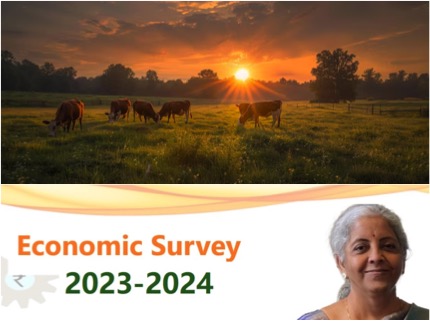The climate crisis is well and truly here, as we all know, and it’s only natural to wonder how we are all contributing to it. What we eat has far-reaching effects on the environment and the journeys our foods undertake to get to our plates can tell us a lot about climate change. From the usual suspects of meat and milk to trendy foods like avocado and plant-based ‘milk’, here’s an explainer on how what you eat affects climate change.
Meat
We’ve all been hearing about the effects of meat on the environment. Livestock raised for meat consumption are one of the biggest contributors to greenhouse gas emissions globally. A 2018 study found that overall, beef and lamb have the highest average greenhouse gas impact per 50 grams of protein, as compared to pork, farmed fish and crustaceans, poultry and eggs. But it’s also important to understand that this may vary from region to region, depending on the farming practices in use. In India, livestock is not reared majorly by big meat businesses, but by big, small and marginal farmers, who heavily depend on the animals for their livelihoods. While the fact remains that meat consumption does negatively affect the environment, understanding this context before switching to protein alternatives like soy—which has its own downsides, like deforestation and high resource use—can help make better choices.
What you can do: If you can and are willing, consider reducing your consumption of red meat. Chicken and eggs have a relatively lower footprint and when it comes to seafood, eating seasonally helps. In season Fish is a collective that puts together a monthly calendar of alternate seafood options based on fish breeding patterns that you can follow to eat better. There are also a variety of mock meat alternatives coming up in India that you can try.
Dairy
Like meat, dairy has a large impact on the environment. But when it comes to dairy, milk itself isn’t the problem. Instead, the problem lies in the growing cattle population, the gases they emit and the land that is cleared out to feed them. Some studies show that cheeses like cheddar and mozzarella have a larger footprint than milk, since a large amount of milk is typically needed to produce a small amount of cheese.
What you can do: Giving up milk can be especially tricky, given the many cultural connotations and diverse uses it has in India, not to mention the livelihoods that depend on it. But you can always opt for more environmentally friendly milk that is unadulterated, non-pasteurized and organic. You can even switch to plant-based ‘milk’—scroll down for more on that—and opt for Indian Cheese Brands rather than imported ones.
Plant-based ‘milk’
Don’t get us wrong—milk alternatives are better for the environment than milk. In fact, a 2018 study by the University of Oxford found that producing a glass of milk leads to almost three times more greenhouse gas emissions than a glass of plant-based milk. However, not all plant-based milks are equally effective in reducing environmental damage. While almond milk is a popular alternative, it’s important to know that the production of almonds requires more water than any other milk alternative. And if the almonds for your milk are imported from the US, they are doing major damage to bees in the region. Commercial bees are used to pollinate almonds and improve yield, leading to high bee mortality rates due to diseases and exposure to pesticides. To meet the demand for coconut milk, labourers in places like India, Indonesia and the Philippines suffer exploitation, not to mention deforestation for land use. Soy milk has a similar story, with forests being cleared out for production.
What you can do: The picture may not seem too hopeful, but there are better alternatives out there. Oat milk has a lower environmental impact—with lower land and water requirements. And even if you choose a different plant-based milk, it’s a start—all plant-based milks have a lower ecological footprint than regular milk.



























